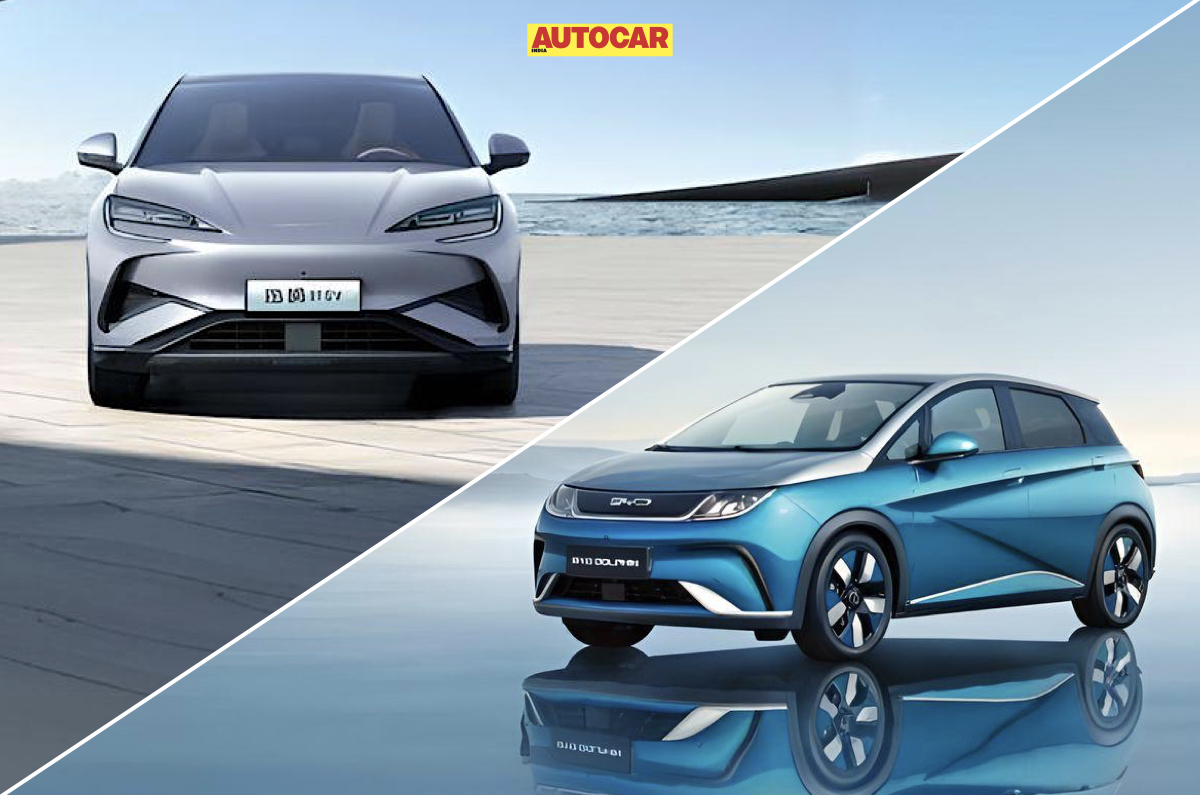BYD India looking to increase its portfolio.
BYD is looking at serving upwards of 85 percent of the Indian EV market in the next three years, according to G Sanjay, senior vice president, BYD India. It will open more outlets, and make sure the brand is present in more areas where EV demand is high. The largest electric carmaker in the world today, BYD says it will expand its portfolio in India, with the ramp-up in new models starting with the Seal sedan. Currently one of the most successful and respected cars from the BYD stable, the Tesla Model 3 rival is expected to capture the imagination of EV buyers in India. “There currently are not many EV sedans on sale, and this should work well for us,” says Sanjay.
- 3 BYD models under evaluation for India launch
- Will look at the right time for local assembly
- BYD aims to become among the largest carmakers in the world by 2030
The Seal will be followed by three more imports that are well suited to market conditions, as BYD builds on its portfolio here. The models that will be imported are still under evaluation, but could include cars like the Tang seven-seat SUV, Seal U SUV and Sea Lion SUV, which have also seen a fair amount of success in international markets. We know how serious BYD is about this from the attractive starting price of Rs 41 lakh for the recently launched Seal.
BYD India: what’s next
If BYD wants to be among the largest carmakers in the world by 2030, as stated, India (a large market in the region) has to be a part of that plan. “BYD, in the long term, is looking at India as the biggest market in the region; eventually, it’ll be bigger than even Japan,” he said. The next phase after this should be local assembly. While this isn’t imminent, and Sanjay stresses, “we have to look at what is the right time for assembly”, the Chinese EV maker also makes it clear that more affordable EVs will come in the future. Let’s not forget, assembling an EV in India attracts only 5 percent GST as against 28 percent on ICE cars, and that, along with lower customs duties associated with local assembly, would make BYD’s cars more competitive. The brand has even applied for a trademark for the 4.3 metre-long Dolphin hatchback, one of its most successful EVs.
With new plants coming up in Thailand and Hungary, BYD will want a plant in India too. The question is, will the Chinese company be able to find the right partner to go ahead with this considering the current political climate?
Which BYD EVs would you like to see in India? Let us know in the comments below.
Also see:
BYD Seal EV receives 200 bookings


